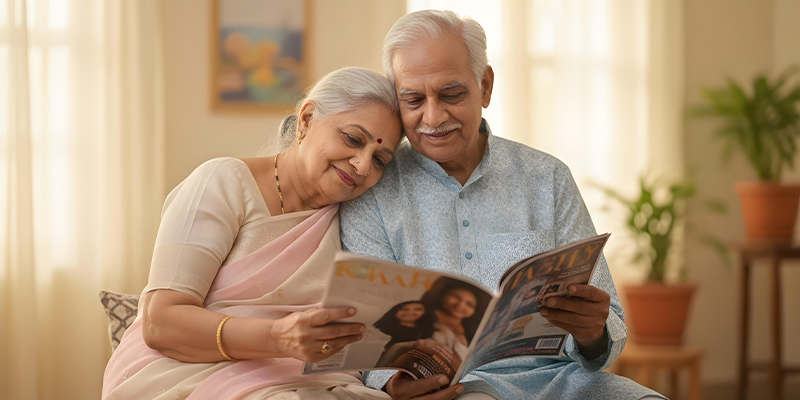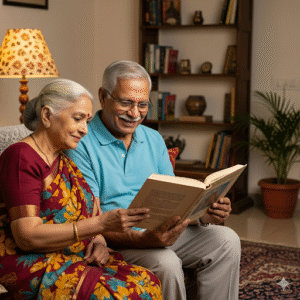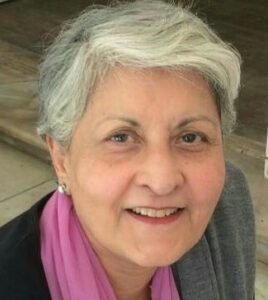Tribeca Eldercare’s Tips on Healthy Ageing – 2
22nd Jan 2026


Eldercare Providers like Tribeca ( www.tribecacare.com) help you understand that there are many routine activities which you breezed through when you were in your forties but, which don’t come so easily in your 70’s. This is nothing which should frighten you. The normal ageing process will bring changes in your body and in the way you move, eat and sleep. We are there to help and support you.
Everyone ages in a different way. Your hereditary factors will determine, for example whether you are a candidate for coronary heart disease, arthritis or diabetes. Your lifestyle will also dictate how you age. Were you a smoker? Did you prefer a sedentary lifestyle and hated the idea of any kind of exercise?
You can’t avoid getting older because simple “ageing” itself is a process which occurs in nature. From animals to plants, every living thing has a determined life cycle and will not continue to be alive after that. For human beings, living and ageing with knowledge, acceptance and mental preparation is important.
Talk to Tribeca Eldercare’s Geriatric Specialist to get a better idea about how to cope with ageing. Call +91 80622 55100 to book an appointment.
Take a Look at What Experts Say
The World Health Organisation on Ageing
https://www.who.int/news-room/fact-sheets/detail/ageing-and-health
At the biological level, ageing results from the impact of the accumulation of a wide variety of molecular and cellular damage over time. This leads to a gradual decrease in physical and mental capacity, a growing risk of disease and ultimately death. These changes are neither linear nor consistent, and they are only loosely associated with a person’s age in years. The diversity seen in older age is not random. Beyond biological changes, ageing is often associated with other life transitions such as retirement, relocation to more appropriate housing and the death of friends and partners.
Common conditions in older age include hearing loss, cataracts and refractive errors, back and neck pain and osteoarthritis, chronic obstructive pulmonary disease, diabetes, depression and dementia. As people age, they are more likely to experience several conditions at the same time.
Older age is also characterized by the emergence of several complex health states commonly called geriatric syndromes. They are often the consequence of multiple underlying factors and include frailty, urinary incontinence, falls, delirium and pressure ulcers”.
“A longer life brings with it opportunities, not only for older people and their families, but also for societies as a whole. Additional years provide the chance to pursue new activities such as further education, a new career or a long-neglected passion. Older people also contribute in many ways to their families and communities. Yet the extent of these opportunities and contributions depends heavily on one factor: health.
Evidence suggests that the proportion of life in good health has remained broadly constant, implying that the additional years are in poor health. If people can experience these extra years of life in good health and if they live in a supportive environment, their ability to do the things they value will be little different from that of a younger person. If these added years are dominated by declines in physical and mental capacity, the implications for older people and for society are more negative”.
Environment Affects Ageing
“Although some of the variations in older people’s health are genetic, most are due to people’s physical and social environments – including their homes, neighbourhoods, and communities, as well as their personal characteristics such as their sex, ethnicity, or socioeconomic status. The environments that people live in as children, or even as developing fetuses, combined with their personal characteristics, have long-term effects on how they age.
Physical and social environments can affect health directly or through barriers or incentives that affect opportunities, decisions and health behaviour. Maintaining healthy behaviours throughout life, particularly eating a balanced diet, engaging in regular physical activity and refraining from tobacco use, all contribute to reducing the risk of non-communicable diseases, improving physical and mental capacity and delaying care dependency”.
The Importance of Social and Physical Environments
“Supportive physical and social environments also enable people to do what is important to them, despite losses in capacity. The availability of safe and accessible public buildings and transport, and places that are easy to walk around, are examples of supportive environments. In developing a public-health response to ageing, it is important not just to consider individual and environmental approaches that ameliorate the losses associated with older age, but also those that may reinforce recovery, adaptation and psychosocial growth”.
Staying Well and Independent: How Tribeca Eldercare Helps
The importance of Caregiving for Older People cannot be under-estimated. But what kind of Caregiving is Beneficial? Looking after older people to give them a happy, useful life is a major concern across the world as populations age and also live longer. Age should not be a burden to the person or to society.
Tribeca Eldercare offers senior citizens the space to age with dignity. There is Basic Physical Assistance with routine hygiene and grooming, household chores and the other activities of daily living such as exercise, eating and sleeping. Then, there is Healthcare to make sure that seniors take their medicines and are regular with doctor check-ups and there is Emergency Response for critical illness situations or falls and accidents.
Staying Happy and Engaged, Tribeca Social Programmes
Most importantly – looking after Wellbeing and Mental Health through socialisation and engagement is vital to ageing well. Tribeca Eldercare which has looked after senior citizens in Kolkata for over ten years and is in fact, the city’s largest Eldercare Provider has many verticals in its scope of activities. Providing Care Services and Packages is just one of the offerings: simultaneously, there is Senior Travel and Social Engagement, Building Community and even onward linking with Retirement Homes. The latest focus is Dementia Care, for its senior members who are showing symptoms of cognitive decline. But consultations and help are available for anyone who calls.
As a Senior, if you need help, talk to Tribeca Eldercare today.
Call +91 80622 55100 to book an appointment.
This article has been written by
Anuradha Bhattacharjee
Communications Consultant with Tribeca Eldercare
